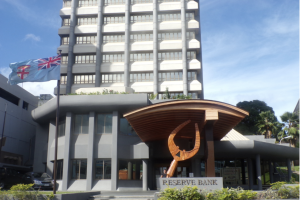 In light of the anticipated rise in inflation to approximately 6 per cent by the end of this year, up from the previously expected 2.8 per cent before the 2022-2023 National Budget announcement, the Reserve Bank of Fiji (RBF) has issued a cautionary note, forewarning the Fijian public about potential consequences. The increase in inflation is expected to lead to a reduction in savings deposits and discretionary spending, indirectly affecting individuals’ capacity to repay loans held with licensed financial institutions.
In light of the anticipated rise in inflation to approximately 6 per cent by the end of this year, up from the previously expected 2.8 per cent before the 2022-2023 National Budget announcement, the Reserve Bank of Fiji (RBF) has issued a cautionary note, forewarning the Fijian public about potential consequences. The increase in inflation is expected to lead to a reduction in savings deposits and discretionary spending, indirectly affecting individuals’ capacity to repay loans held with licensed financial institutions.
According to the RBF’s Financial Stability Review, this inflation surge is attributed to several factors, including the rise in the Value Added Tax (VAT) rate and excise duty, which are projected to elevate the prices of goods and services and exert upward pressure on inflation. The increase in VAT and excise duty is anticipated to impact consumers directly, as prices rise for various commodities.
The reduction in duty on a range of food products, aimed at stimulating consumption and economic activity, is seen as a potential benefit, but the central bank cautions that these advantages will only be realised if the duty concessions are passed on to consumers. The government’s decision to increase the Corporate Income Tax rate and impose a 3 per cent fiscal duty on selected imported goods, among other fiscal measures, is expected to affect the cost of doing business, which, in turn, may have repercussions on sales and profit margins for local businesses. The RBF warns that these increased costs may be indirectly transferred to consumers, diminishing their purchasing power and impacting their ability to service debts.
The imposition of a 3 per cent fiscal duty and the removal of certain concession codes on duty-free importation will help the government generate much-needed revenue, but these measures are also likely to escalate the prices of goods and services, contributing to inflation and hindering consumption activity and new lending.
Additionally, the RBF predicts that Fiji’s import bill will increase following these policy changes, which could influence foreign reserve levels. The reduction in fiscal duty and import excise duty on specific food items is seen as a potential boon for households, but its effectiveness is contingent on whether these benefits are passed on to consumers.
Various sectors are poised to be directly impacted by these policy shifts, including manufacturing, wholesale, retail, hotels and restaurants, transport and storage, mining, and communication. The tourism industry is also expected to bear the brunt of changes like the increased airport departure tax and domestic excise duty on alcohol, tobacco, and sugary beverages, potentially diminishing Fiji’s competitiveness in the global tourism market.
The RBF underscores the significance of the tourism sector in relation to foreign reserve levels, as it is intricately tied to visitor arrivals and tourism earnings. Despite these challenges, the RBF assures that foreign reserves remained at a sufficient level of $3.566 billion as of 29 September 2023, capable of covering 6.3 months of retained imports of goods and non-factor services.
The government’s decision to raise the VAT from 9 percent to 15 percent while maintaining zero-rated VAT on 21 basic items, along with the inclusion of prescribed medicines on the zero-rate list, is expected to augment net VAT collections to approximately $445.6 million.



